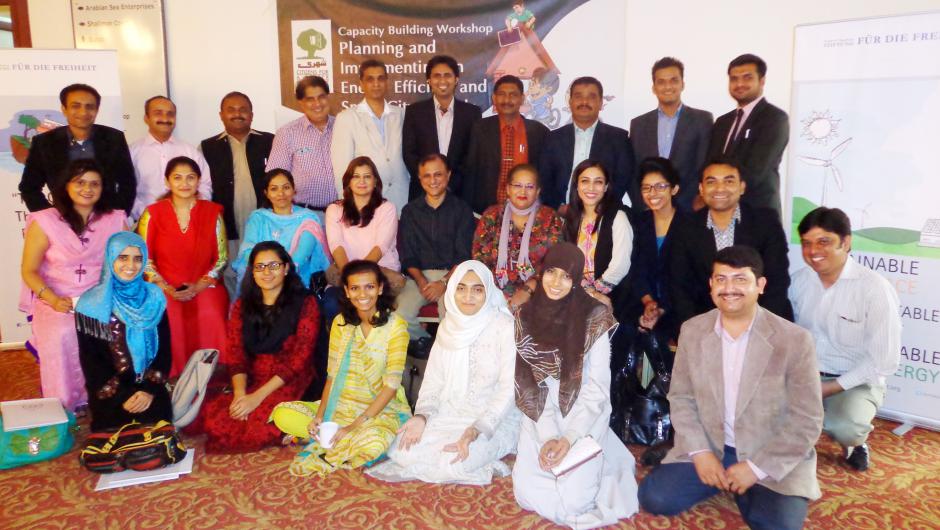Smart and Sustainable cities for an energy efficient Pakistan

The most critically important human activity contributing to emissions of greenhouse gases (GHG’s) and resulting climate variability and change is consumption of energy. Heavy dependence on fossil fuels as sources of energy production and inefficiency in the management of energy dependent activities are increasing the challenge of climate change induced weather scenarios such as flooding, drought, increased heat events and sea level rise. Pakistan currently acquires most of the electricity from fossil fuels (oil & gas). In view of soaring prices, limitations and climate change; many countries are going through or planning to transit their focus from fossil fuel and nuclear energy to renewables.
Pakistan has a variety of alternative and renewable sources of energy to draw from as it has abundant wind and sun and can also go for the option of bio-gas production. Energy efficiency measures and utilization of renewable sources of energy can be done both at a macro and at a micro level – i.e. the government can put in place the required governance framework and citizens can even at their household level initiate energy efficiency measures and make use of renewable sources of energy. Also, there is a need to develop the future planners, designers and innovators who can contribute to making Pakistan a country having a much reduced carbon footprint.
Everyday things like switching to energy efficient lights, driving less and turning off electronic devices when not in use help stop climate change
With this realization in mind, Friedrich Naumann Foundation for Freedom Pakistan in collaboration with Shehri-Citizens for a Better Environment recently organized a series of ‘Training & Orientation’ workshops targeted a) at key stakeholders in both the government and civil society and b) at the youth of three (3) higher level educational institutions in Karachi city.
The participants were within the context of climate change made aware of the importance of making our cities, both energy efficient and moving towards greater reliance on renewable energy uses. Moderator Farhan Anwar explained the significance of the ‘individual’ in the fight against climate change. He stated that “Everyday things like switching to energy efficient lights, driving less and turning off electronic devices when not in use help stop climate change”. Special focus was on understanding the basic design requirements of green buildings and smart cities and on how to plan out an urban energy turnaround program. The training was conducted in an interactive manner utilizing multiple modes of imparting information such as lectures, videos, quizzes, working group exercises etc.